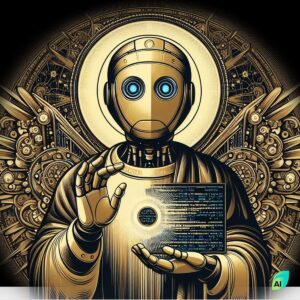AppGen Is Here: Say Goodbye to Software Development As You Know It
The software development world is standing on the edge of a seismic shift — and most organizations don’t even see it coming. The age of handcrafted code, siloed software development lifecycle (SDLC) phases, and bloated SaaS portfolios is ending. What’s replacing it? Application Generation (AppGen) — a new paradigm that will collapse the software development lifecycle, democratize development, and redefine what it means to “build software.”
Let’s be clear: this isn’t just another AI-enhanced integrated development environment (IDE) or a smarter low-code tool. AppGen is a full-stack, AI-native, business-aware platform model that doesn’t just assist developers — it replaces entire categories of development work.

The Status Quo Is Broken
For decades, we’ve layered Agile, DevOps, and low-code on top of a fundamentally flawed model: one with many different siloed roles of humans that pass artifacts between them using disconnected tools and cumbersome processes. Don’t get me wrong, Agile, for those that have been successful with it improved things, but not enough. Even with GenAI, most organizations are still stuck in this old paradigm — treating AI like a digital intern, “everyone gets a Copilot!” rather than a transformative force.
But here’s the truth: natural language alone won’t replace code, and slapping AI onto legacy tools won’t fix the SDLC. We need a new model.
Enter AppGen: The New Operating Platform for Software
AppGen platforms are not just tools — they are AI-native ecosystems that:
- Use agentic TuringBots to automate and orchestrate across the SDLC.
- Employ intermediate modeling languages to bridge the gap between business intent and executable code.
- Enable fluid, multimodal development — from natural language to diagrams to code — in a single, iterative flow.
- Embed domain knowledge and governance directly into the platform, making compliance and quality defaults, not afterthoughts.
This is not a vision. It’s already happening. Microsoft, Oracle, OutSystems, and Airtable are building towards it. And the implications are massive
What Changes Now?
In a recent research document we outlined a new operating model, driven by citizen developers, vibe coders, and platform specialists where:
- The SDLC collapses. Ideation, design, build, test, and deploy become a single, generative act.
- Citizen developers rise. Business users become digital process owners, not just requesters.
- Software becomes ephemeral. Need a one-time app for a two-week process? Generate it. Use it. Discard it.
- Portfolios consolidate. Why buy 100 niche SaaS apps when you can generate them on a unified platform?
- “Build first” becomes the default. Off-the-shelf is no longer the fastest or cheapest option.
The Future Is AppGen
In 4 to 6 years AppGen will be the norm. But the winners will be those who start the journey now. This is your chance to leapfrog the competition, collapse complexity, and finally align software with business at the speed of thought. The question isn’t whether AppGen will change software development. It’s whether you’ll lead the change — or be left behind. Agree ? Disagree ? Have questions, want to know what to do about it ? Forrester clients can read our new research, and or schedule an inquiry or guidance Session with John Bratincevic or myself. Stay tuned for more research on how software development change is coming.
